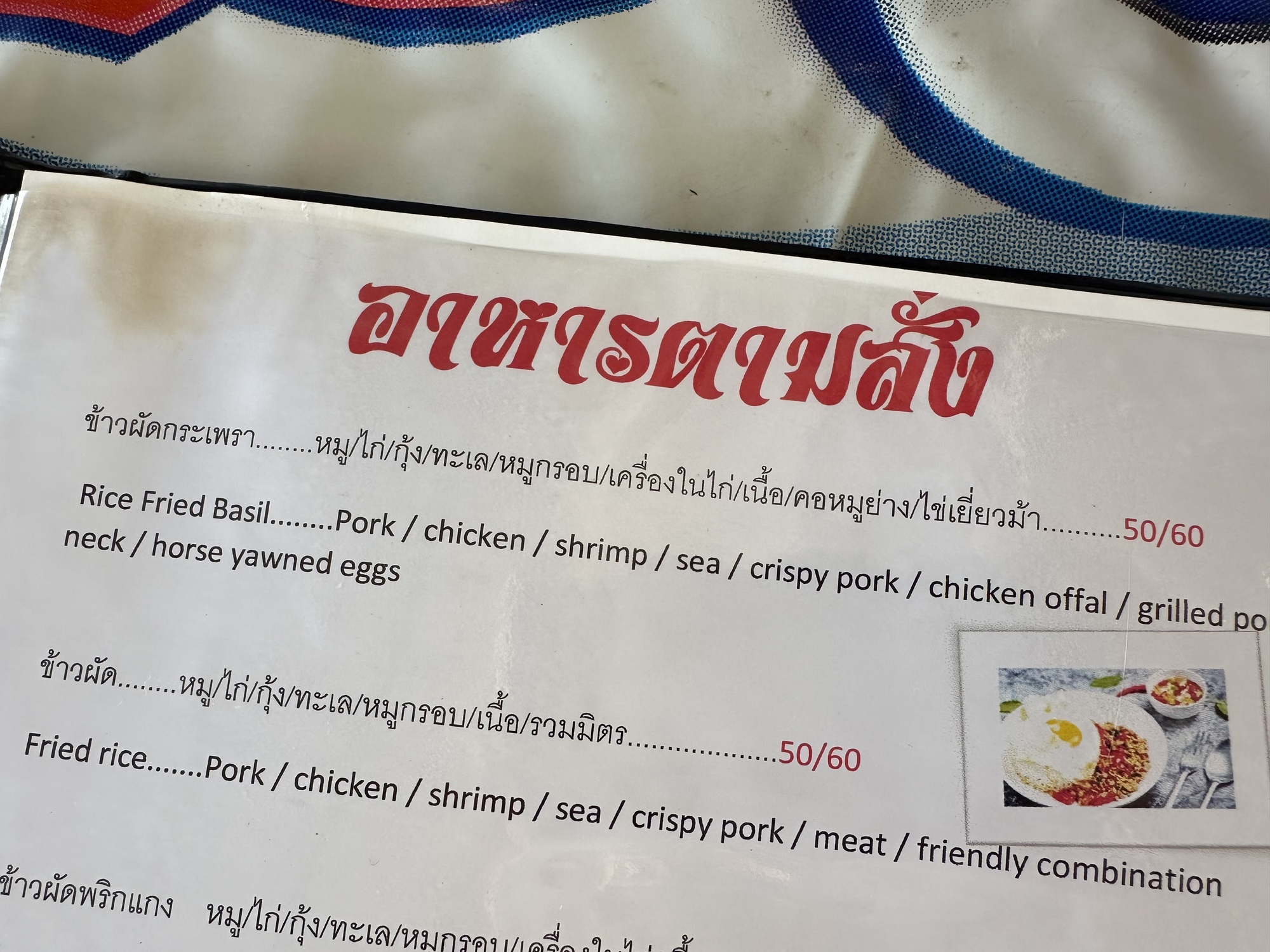February 11, 2024
Pink Eggs

| Heart | 3 | Comment | 0 | Link |
Pink Eggs
Okay, so there was a comment/question by Gregory Garceau in one of our previous posts called, It's so Easy Here. Gregory was wondering about the pink eggs that his sharp eyes spotted in the dark corners of some market photo. I have always assumed the pink eggs were another version of Thousand Year Old Eggs, also called Century Eggs. Thousand Year Old Eggs originated in China and are gray, ashen, dirty looking and sometimes with dirt or actual ash on them. When there were times of abundance in China they preserved eggs for future use. Century Eggs or Thousand Year Old Eggs always look dirty but Pink Eggs are always bright and clean and brilliantly colored.
After Googling and reading a bit about them I came across this:
"We are sure that you have seen pink eggs in Thai markets or grocery stores before. Have you ever wondered what they are? The Thai name for the pink egg is ไข่เยี่ยวม้า (khai yiao ma) which actually translates to “horse urine egg”. There is a common misconception or “myth” that these eggs used to be made by soaking them in horse urine.
Thankfully, this is not actually true, but the myth likely came from the fact that the pink egg has a smell of ammonia that many people aren’t used to. The pink egg is a Thai variation of a century egg or thousand year old egg – an Asian tradition that involved preserving the egg for several weeks or months using a process that combines clay, ash, salt, quicklime and rice hulls.
This particular preparation method for eggs originated in Thailand. The result completely transforms the egg – while it is pink on the outside, the pink egg is actually greenish-black or dark brown once peeled. Some people are put off by the smell – it has a somewhat pungent smell, but we guarantee the taste is not as bad as it may initially seem!
There are several uses for the pink egg or century egg in Thai food. Sometimes it is eaten on its own as a snack. Alternatively, it can be added to other Thai food dishes in order to add some additional flavor to the mix, like Grapao (holy basil stir fry)."

| Heart | 3 | Comment | 0 | Link |
This is interesting because inadvertently Gregory solved a question we had as well. We had seen an odd thing on a menu - "Horse Yawned Eggs." What!? It was so odd that I even took a photo of it.
We never would have figured this out if Gregory hadn't been curious. I'm now sure that they meant Thousand Year Old Eggs and the "Yawned" was just a bad translation maybe from a translation device when they were making their menu in English. I'm so glad that Century Eggs or Pink Eggs are not actually soaked in horse urine for months!
Thank you, Gregory.
lovebruce
| Rate this entry's writing | Heart | 12 |
| Comment on this entry | Comment | 3 |
https://www.cycleblaze.com/journals/taiwan2014/pingtung-city/#3282_2135493_EhBkUX_image
1 year ago
1 year ago
